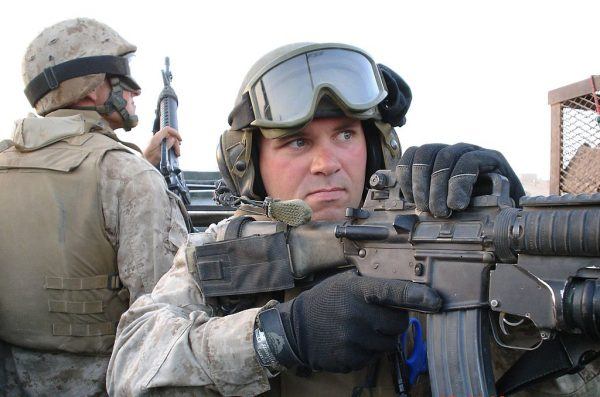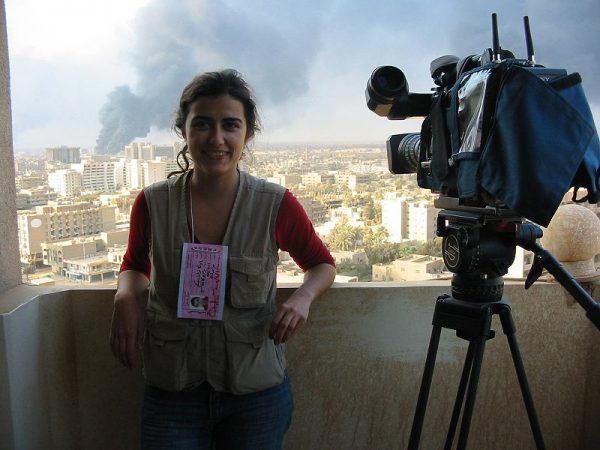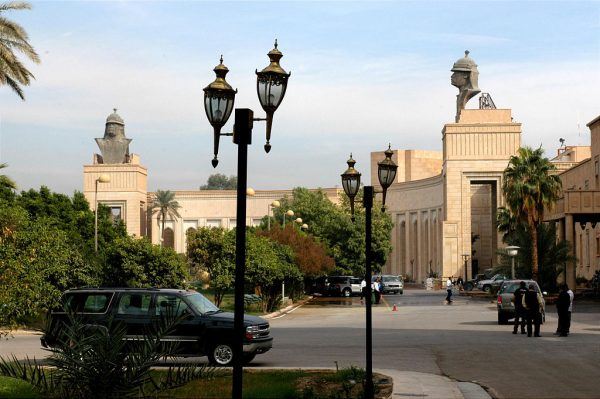Fifteen years ago, in March 2003, the United States and a “coalition of the willing” launched the invasion of Iraq. After much political maneuvering and significant opposition, President George W. Bush made good on the ultimatum he gave Saddam Hussein and his sons, Uday and Qusay, to leave the country or face military action. Fifteen years later, the decision to invade Iraq remains controversial.
The lead-up to the invasion was full of uncertainty. U.S. forces massed in Kuwait during the winter of 2003 and were joined by troops from the United Kingdom, Australia, and Poland. The 9/11 attacks had occurred less than two years earlier and were still fresh in our collective memory. Saddam Hussein and the government of Iraq had been dodgy about their weapons of mass destruction (WMD) program since the end of the 1991 Persian Gulf War and had continued to demonstrate aggressiveness towards Kuwait. U.S. and coalition aircraft enforcing United Nations-mandated no-fly zones over northern and southern Iraq were routinely shot at by Iraqi air defense systems.
The consensus in the White House was that Saddam Hussein had to go and military force would be used if he did not. Most Americans approved of military action against Iraq—around 64 percent according to a CBS poll conducted in January 2003.
The first strike of the invasion was carried out on March 19, 2003, during the early morning hours on a location known as Dora Farms. It was believed that Saddam Hussein was there and the decapitation strike was an attempt to eliminate Saddam before the invasion even began. He wasn’t there and the next night, Operation Iraqi Freedom was officially underway.
For the next few nights, coalition aircraft and cruise missiles pulverized Baghdad. With news cameras rolling, bomb after bomb and missile after missile found their target in the government section of Iraq’s capital. Meanwhile, ground troops were crossing the border from Kuwait into Iraq. The U.S. Army’s 3rd Infantry Division sprinted for Baghdad, the 1st Marine Expeditionary Force hooked right and hit the cities along the main supply route running up to Baghdad, and the British ground element went for the port city of Umm Qasr and southern city of al Basra.

It went quickly. Despite heavy fighting around Nasiriyah, Karbala, and Haditha Dam, U.S. forces brushed by the opposition put up by Iraqi troops. The heaviest fighting came from Saddam Hussein’s Republican Guard divisions and his Fedayeen, paramilitary units fiercely loyal to Saddam and the Baath regime. By early April, U.S. forces were on the verge of taking Baghdad. Saddam Hussein was nowhere to be found, and the government of Iraq no longer controlled the country.
Private First Class Jessica Lynch, captured by Iraqi forces during the fighting around Nasiriyah, was rescued by U.S. troops in April. Saddam’s statue was taken down in front of an elated crowd. Weapons of mass destruction were not used against coalition forces, and the hunt to track them down was on.
On May 1st, President George W. Bush made his famous, or infamous, “Mission Accomplished” speech aboard the U.S.S. Abraham Lincoln. Major combat operations ended, but fifteen years later, U.S. troops are on the ground in Iraq and the country’s future remains uncertain. As we all know, Iraq would descend into even worse violence in the coming years. The number of U.S. troops on the ground would come down initially, only to rise to its peak in 2007-2008 during the surge—potentially the turning point in the entire Iraq War.

The invasion changed the way wars are covered by the media. Real-time images of troop movements and reporters “embedded” with frontline units gave a view of war unlike any other up to that point in history. The rules for the media were simple: do not give away the location of U.S. forces or endanger U.S. troops. In an age before social media had begun to take off and dominate how we get news, television was still the primary way we absorbed information. Daily reports from the battlefield, often live, gave Americans an even more intimate view of combat than Vietnam or even Desert Storm had.
Saddam Hussein was a murderous tyrant who brutalized much of his country. He was guilty of war crimes, and the world is a better place because he is gone. But many will point to the current situation in the Middle East and blame the U.S. decision to invade Iraq for the Islamic State, a more powerful and emboldened Iran, and continuing instability in Iraq. Maybe the invasion wasn’t the problem. When analyzing the events, timelines, and data, the occupation looks to be the point where Iraq began to fracture and terrorist groups like al Qaeda in Iraq (AQI) and militias like Jaysh al-Madhi rushed in to take advantage of a power vacuum.
Our involvement in Iraq created a breeding ground and gathering point for jihadists and extremists. But we remain committed to securing Iraq’s future. The Islamic State has lost its territory in Iraq. Iraqi security forces appear to be more well-trained and capable of defending their country now then they have ever been. And we now have an ally in the Middle East that we did not have prior to the invasion.

Terrorists are no longer roaming through cities in Iraq. The people of Iraq no longer live their lives in fear. Perhaps this is the time where Iraq reemerges as a stable and secure country. A place were Shiites, Sunnis, Christians, and Kurds can coexist under one flag and live in peace.
















